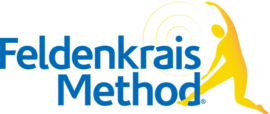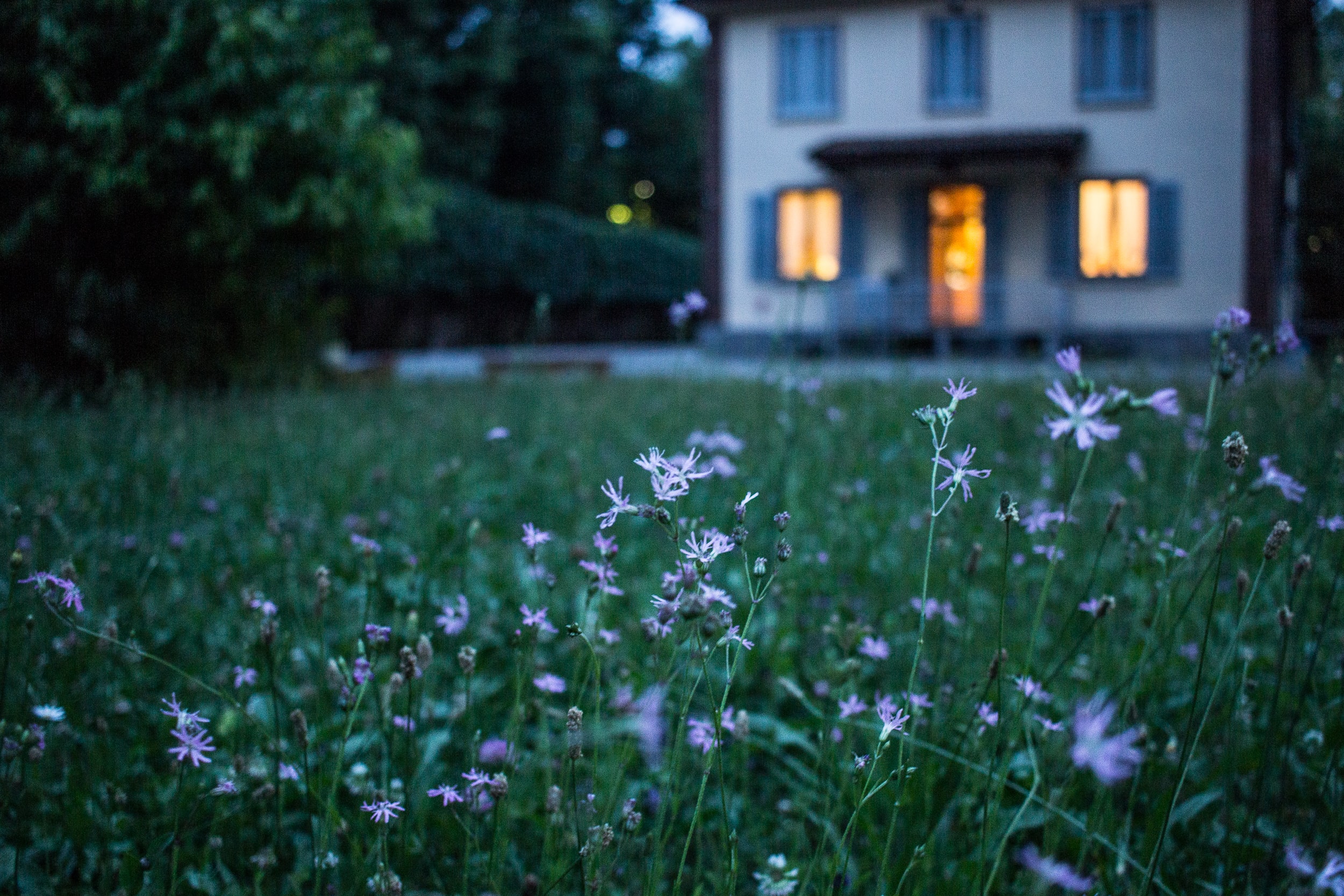
How are you? Where does the time go each day?
Whether you are stress-baking, cleaning out closets, binging on Netflix, or all of the above, we see you and want you to know that you’re not alone. Some are dealing with boredom and “bottom of the list” chores, while others are busy homeschooling their kids, telecommuting, and figuring out what’s next.
I’ve tried to balance busy-ness with introspection in these past weeks. I’ve wondered a time or two what the Feldenkrais Method® of somatic education has to offer people right now. People have serious concerns, considerable stress, and have experienced radical changes in schedule, lifestyle, and habits. It all happened so quickly. How could it help to lie on the floor?
If you’ve spent a lot of time in front of various screens in the past weeks, there’s no doubt that movement will help you to feel less stiff, more comfortable, and more aware so you can do the things you need to do. But beyond the physical benefits, there’s even more benefit on the floor.
Each Awareness Through Movement® lesson offers the ability to practice the very qualities of the human spirit that are essential now, as perhaps at no other time in our collective history. You can practice resilience, adaptability to constraints and changing conditions, solution-seeking, invention and variation; with a backdrop of acceptance and curious good humor — all while lying on your floor. Surely – that couldn’t hurt.
This unusual “Stay-At-Home” post previously appeared in the FGNA publication SenseAbility. We offer you resources and opportunities to move, think, sense, and feel, so you can be your best self now and in the post-pandemic period to follow.
–MaryBeth Smith and Lavinia Plonka
FGNA Communications Team
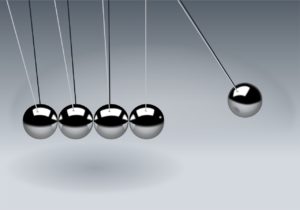
MOVING
Newton said it long ago: An object at rest stays at rest and an object in motion stays in motion. If you find you are glued to your couch, or frozen in front of your computer, it can be difficult to fight the laws of physics. Yet, every “stay home” so-called expert is urging us to move in order to stay healthy. Not only that, but movement can actually make you feel calm, centered, alert, and present, so you can more efficiently clean your fridge or learn to play the accordion.
Join Feldenkrais® students across North America for online learning. Now you can take a class from any location at the time that is most convenient for you. Simply click here for a calendar of lessons, appropriately entitled “Feldenkrais 24/7,” compiled by Robert Black, GCFP. Enjoy exploring the vast variety of classes and styles – an unprecedented opportunity to learn from many experienced teachers!
SHORT VIDEO LESSONS
Calm Your Nerves with Feldenkrais: Julie Francis
Release Shoulder Tension: Cynthia Allen
Increase hip comfort while sitting: Robert Black. Hilariously, YouTube has flagged this video as “May be inappropriate for some viewers.” Possibly because of the word, “Hip,” and the text “Foot Play” on the video title. There are also references in the audio to “sliding.” Click “Proceed Anyway” to watch the video – if you want to see socks, slacks-clad lower legs, and a lovely rug. You have been warned.
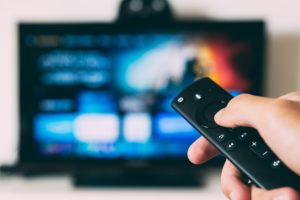
THINKING
You can only watch so many episodes of Outlander. Get some real brain food by learning more about the Feldenkrais Method.
A list of books written by Moshe Feldenkrais appears here.
Read posts from our blog about diverse applications of the Feldenkrais Method.
If you are interested in current research about the Feldenkrais Method, you will love the beautiful and informative open-access journal published by the International Feldenkrais® Federation, the IFF Feldenkrais Research Journal.
Food for thought: Interesting NYT article about proprioception – the sense of where your body is in space — as a survival skill. How We Use Our Bodies to Navigate a Pandemic.
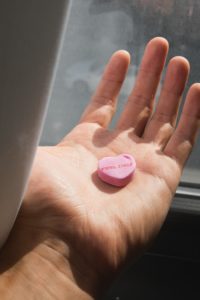
FEELING
We often forget that the word “emotion” actually comes from the Latin: Move- out.
Emotions move through our whole bodies and affect our posture, our breath and even the way we see. Staying at home can be emotionally turbulent, or a great way to learn more about how our emotions “move” through us.
Donna Ray on emotional integration the Feldenkrais® way.
Six Daily Questions to Ask Yourself During Quarantine
Tips for Mental Health and Coping During COVID-19 from the Centers for Disease Control
More Tips from the Substance Abuse & Mental Health Administration (SAMHSA)

| SENSING We don’t often think of Smell, taste and the Feldenkrais Method together. Here’s a short excerpt from Lavinia Plonka’s book, Playing in the Kitchen, which combines story, recipe, and Awareness Through Movement lessons for cooks. Bon Apetit! Feast your other senses (including your sense of humor) on some of our favorite things found on the Internet in between Zoom lessons. . . I wanna know what day it is (Foreigner Parody) Download coloring pages from 100 Museums and Libraries for Free 11 of the best museum and art gallery tours List of live virtual concerts to stream Dance Performances online |
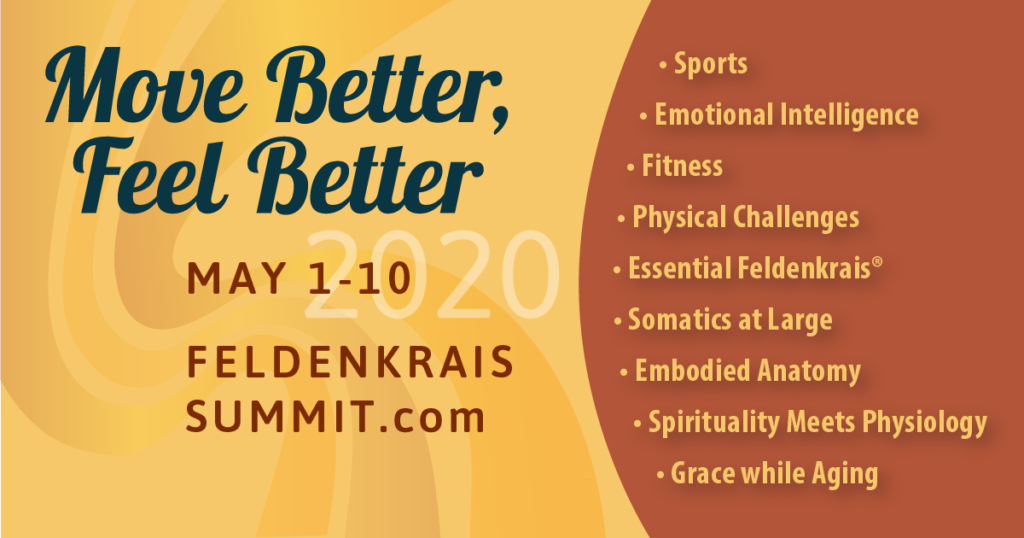
| The SUMMIT Returns International Online Event Join 35 somatic experts and a world-wide audience for ten days of amazing Awareness Through Movement lessons, interviews, panel discussions, and much more. And the best thing is: it’s FREE. Co-hosts Cynthia Allen and Lavinia Plonka interview experts addressing a different theme each day. Over 10,000 people attended the 2019 Summit, so don’t miss out! Get your free ticket now. to attend and watch in real time and replays for 48 hours. If you have to miss some and wish you could see it all, consider purchasing the all-access pass. A portion or your purchase benefits FGNA. Visit the Summit website and see what’s happening! |
